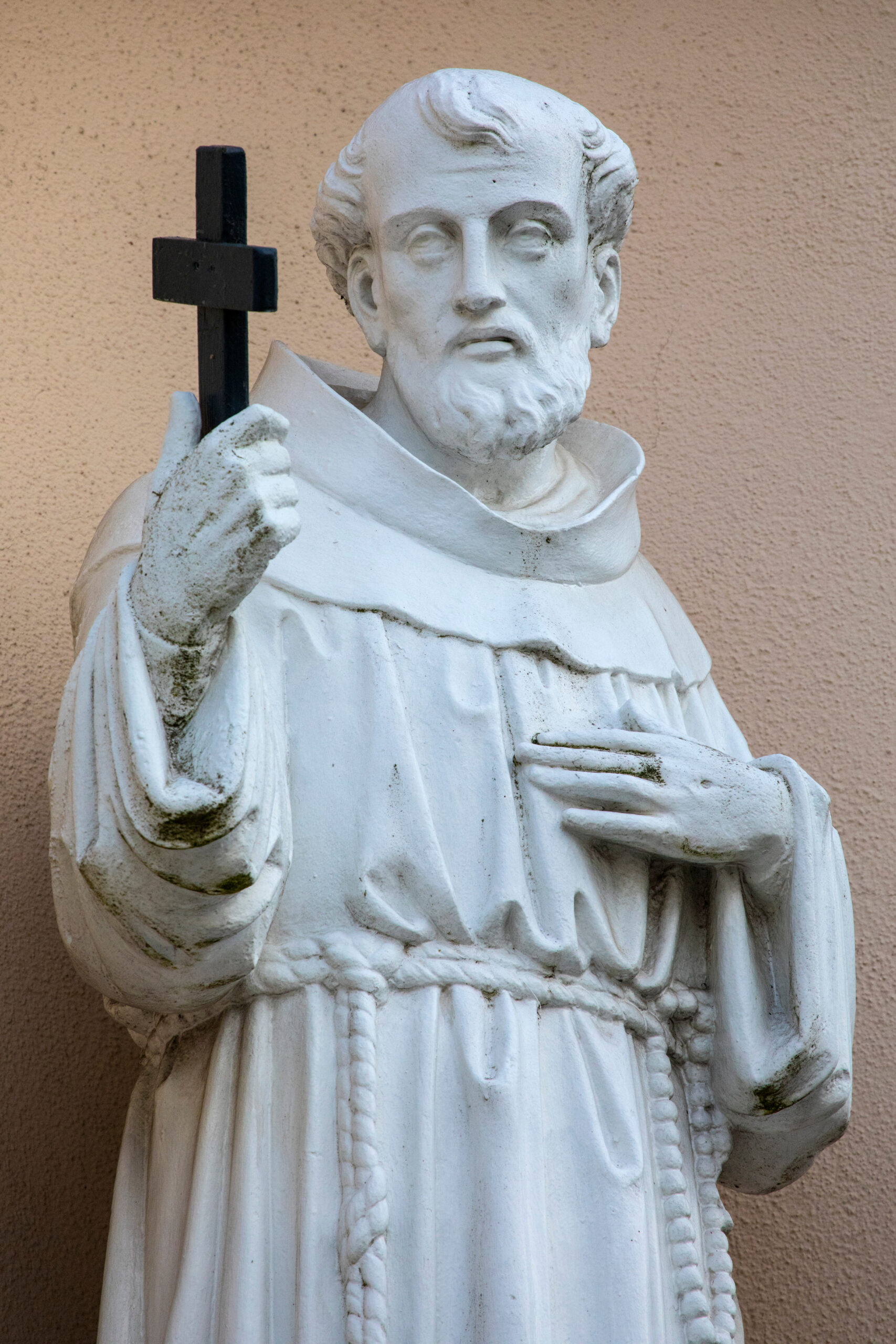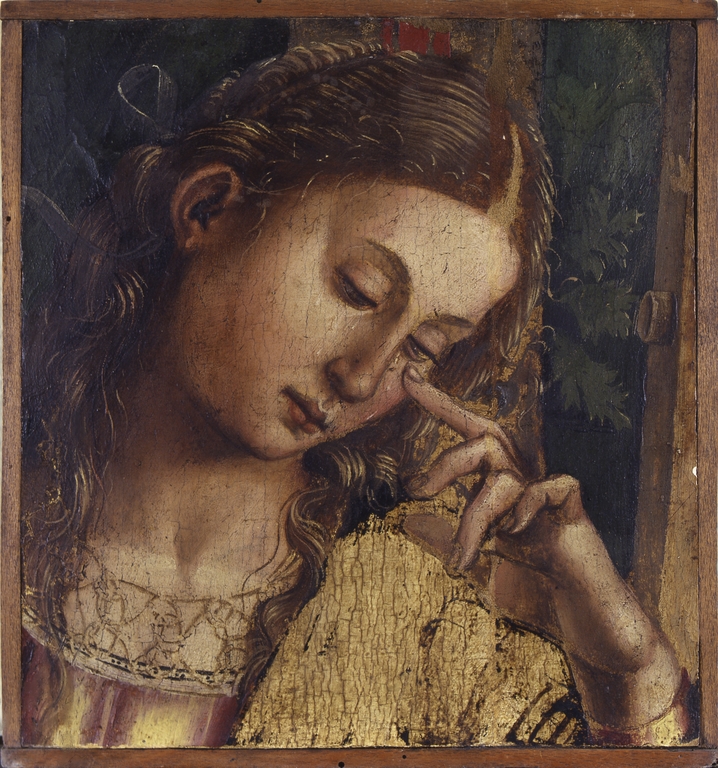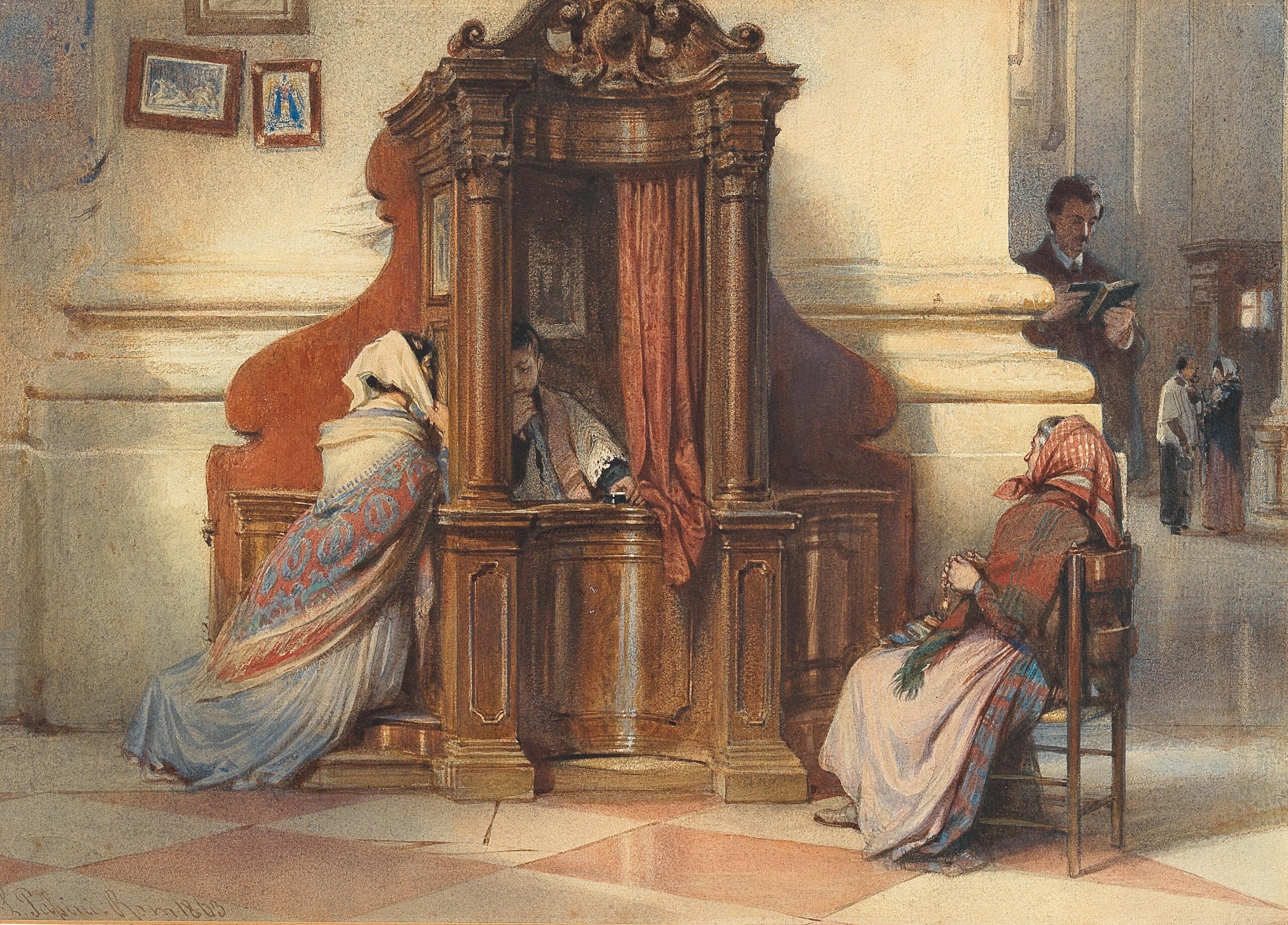As the queen of virtues, the cultivation of humility should be the aim of all souls. Our Lord Himself beckons us to “Learn of Me, to be humble of heart.” Be inspired to true humility with this reflection from Humility of Heart.
Pride: The Destruction of Souls
IN Paradise there are many Saints who never gave alms on earth: their poverty justified them. There are many Saints who never mortified their bodies by fasting or wearing hair shirts: their bodily infirmities excused them. There are many Saints too who were not virgins: their vocation was otherwise. But in Paradise there is no Saint who was not humble.
God banished Angels from Heaven for their pride; therefore, how can we pretend to enter therein if we do not keep ourselves in a state of humility? Without humility, says St. Peter Damian (Serm. 45), not even the Virgin Mary herself, with her incomparable virginity, could have entered into the glory of Christ, and we ought to be convinced of this truth that, though destitute of some of the other virtues, we may yet be saved, but never without humility. There are people who flatter themselves that they have done much by preserving unsullied chastity, and truly chastity is a beautiful adornment; but as the angelic St. Thomas says: “Speaking absolutely, humility excels virginity.”
We often study diligently to guard against and correct ourselves of the vices of concupiscence, which belong to a sensual and animal nature, and this inward conflict which the body wages adversus carnem—“against the flesh”—(Gal. 5:17) is truly a spectacle worthy of God and of His angels. But, alas, how rarely do we use this diligence and caution to conquer spiritual vices, of which pride is the first and the greatest of all, and which sufficed of itself to transform an angel into a demon!
The School of Jesus Christ
Jesus Christ calls us all into His school to learn, not to work miracles, nor to astonish the world by marvellous enterprises, but to be humble of heart. “Learn of Me, because I am meek and humble of heart.” (Matt. 11:29). He has not called everyone to be doctors, preachers or priests, nor has He bestowed on all the gift of restoring sight to the blind, healing the sick, raising the dead or casting out devils, but to all He has said: “Learn of Me, to be humble of heart,” and to all He has given the power to learn humility of Him. Innumerable things are worthy of imitation in the Incarnate Son of God, but He only asks us to imitate His humility. What then? Must we suppose that all the treasures of Divine Wisdom which were in Christ are to be reduced to the virtue of humility? “So it certainly is,” answers St. Augustine. Humility contains all things because in this virtue is truth; therefore, God must also dwell therein, since He is the Truth.
The Saviour might have said: “Learn of Me to be chaste, humble, prudent, just, wise, abstemious, etc.” But He only says: “Learn of Me, because I am meek and humble of heart.” (Matt. 11:29). And in humility alone He includes all things, because as St. Thomas so truly says, “Acquired humility is in a certain sense the greatest good.” Therefore whoever possesses this virtue may be said, as to his proximate disposition, to possess all virtues, and he who lacks it, lacks all.
Place God Above All Else
Reading the works of St. Augustine, we find in them all that his sole idea was the exaltation of God above the creature as far as possible, and as far as possible, the humble subjection of the creature to God. The recognition of this truth should find a place in every Christian mind, thus establishing—according to the acuteness and penetration of our intelligence—a sublime conception of God and a lowly and vile conception of the creature. But we can only succeed in doing this by humility.
Humility is in reality a confession of the greatness of God, who after His voluntary self-annihilation, was exalted and glorified; wherefore, Holy Writ says: “For great is the power of God alone, and He is honored by the humble.” (Ecclus.3:21).
It was for this reason that God pledged Himself to exalt the humble and continually showers new graces upon them in return for the glory He constantly receives from them. Hence the Inspired Word again reminds us: “The greater thou art, the more humble thyself in all things, and thou shalt find grace before God.” (Ecclus. 3:20).
The humblest man honors God most by his humility, and has the reward of being more glorified by God, who has said: “Whosoever shall glorify me, him will I glorify.” (1 Kings 2:30). Oh, if we could only see how great is the glory of the humble in Heaven!
ooo
This article is taken from a chapter in Humility of Heart by Fr. Cajetan Mary de Bergamo which is available from TAN Books.









